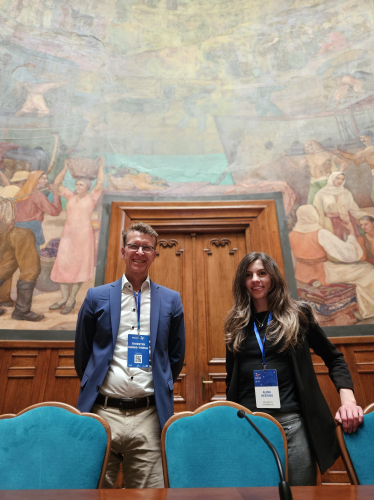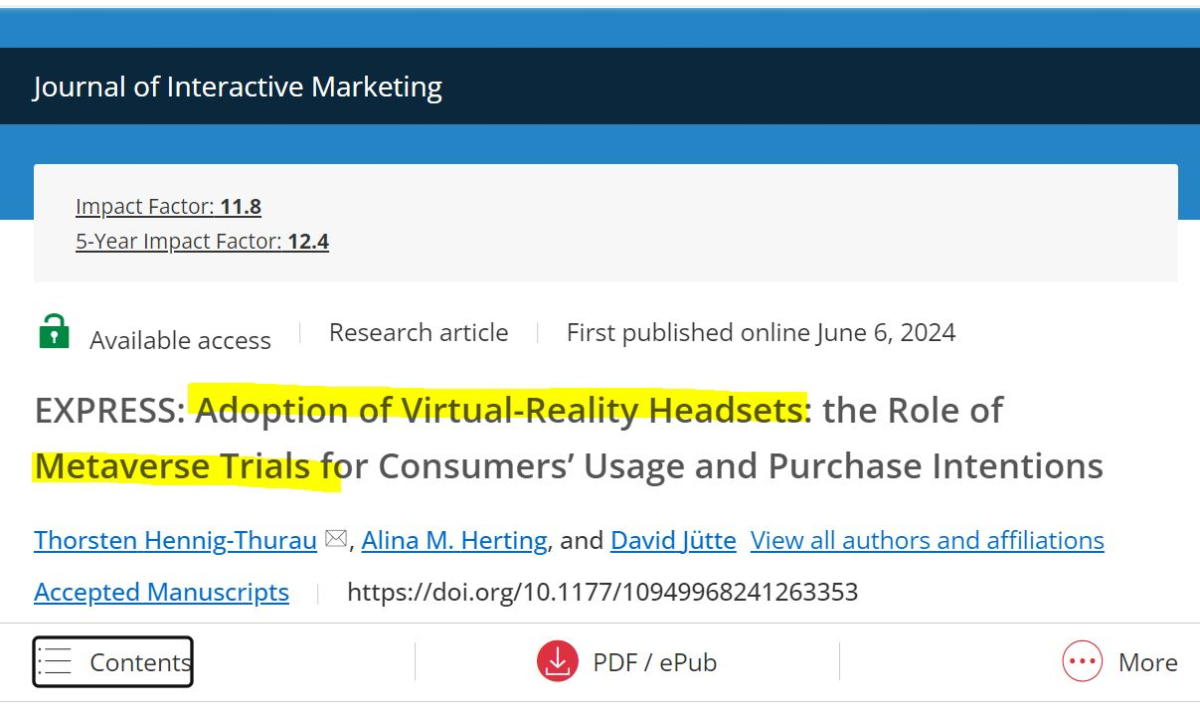Does Trying Out VR Headsets Boost Adoption? YES! But there's a catch... A New MCM Article in the Journal of Interactive Marketing!

A new article by MCM scholars Prof. Dr. Thorsten Hennig-Thurau, Alina Herting, and Dr. David Jütte has been accepted for publication in the renowned 𝗝𝗼𝘂𝗿𝗻𝗮𝗹 𝗼𝗳 𝗜𝗻𝘁𝗲𝗿𝗮𝗰𝘁𝗶𝘃𝗲 𝗠𝗮𝗿𝗸𝗲𝘁𝗶𝗻𝗴. In their article "Adoption of Virtual-Reality Headsets: The Role of Metaverse Trials for Consumers’ Usage and Purchase Intentions” the scholars from the Chair of Marketing & Media at the MCM shed light on one of the VR industry’s most foundational questions: Now that billion-dollar investments have resulted in high-fidelity standalone headsets which are available everywhere, why is it that VR hasn’t been picked up by the consumer mass market yet? And would consumer product trials change that?
In the article, the scholars who are also active members of the MCM's eXperimental Reality Lab (XRLab@MCM), use exclusive data from a three-month ‘metaverse trial’ in which 90 students engage in several virtual social experiences via Meta Quest 2 headsets, from working together to going to the movies together and jointly consuming a service experience. After the trial, these adoption intentions are compared with the intentions of statistical twins – similar consumers who have NOT participated in any VR/metaverse trial activity and which were identified from a large set of more than 2k survey respondents via propensity score matching.
The article shows, that those who participated in the metaverse trial show a higher intention to use VR headsets afterwards, compared to their statistical twins of ‘non-trialists’. But they also find that the participants were less likely to purchase a VR headset after the trial experience compared to their twins. These results demonstrate that VR headsets indeed are perceived as useful and beneficial by the majority of those who try them out over a longer period of time – which is good news for the VR industry. At the same time, however, perceived high costs and yet limited personal benefits ("Who to play with after all?") might hamper purchase intentions. As with all empirical research, the scholars detail the specific aspects of the study, such as the use of Quest 2 headsets and the fact that all participants were from Germany. Results might be different with other headsets and consumers from other parts of the world.
Additionally, the MCM team dives deeper into the metaverse trial experience data in their freshly published article, finding that fun and social presence can boost future adoption intentions. Interestingly, they do not find perceived exhaustion of the trialists to reduce usage or purchase intentions. Further, they study how characteristics of individuals (e.g., the trialists’ technology anxiety and their need for control) and also the groups participants met with (e.g., the groups’ general capabilities and their gender diversity) shaped the trial experience. These insights should be of value for those want to run VR/metaverse trials themselves.
A preformatted article is already available on the journal’s website and can be accessed at:
https://journals.sagepub.com/eprint/XS5IAZBZBPIMZDNHPVQB/full


